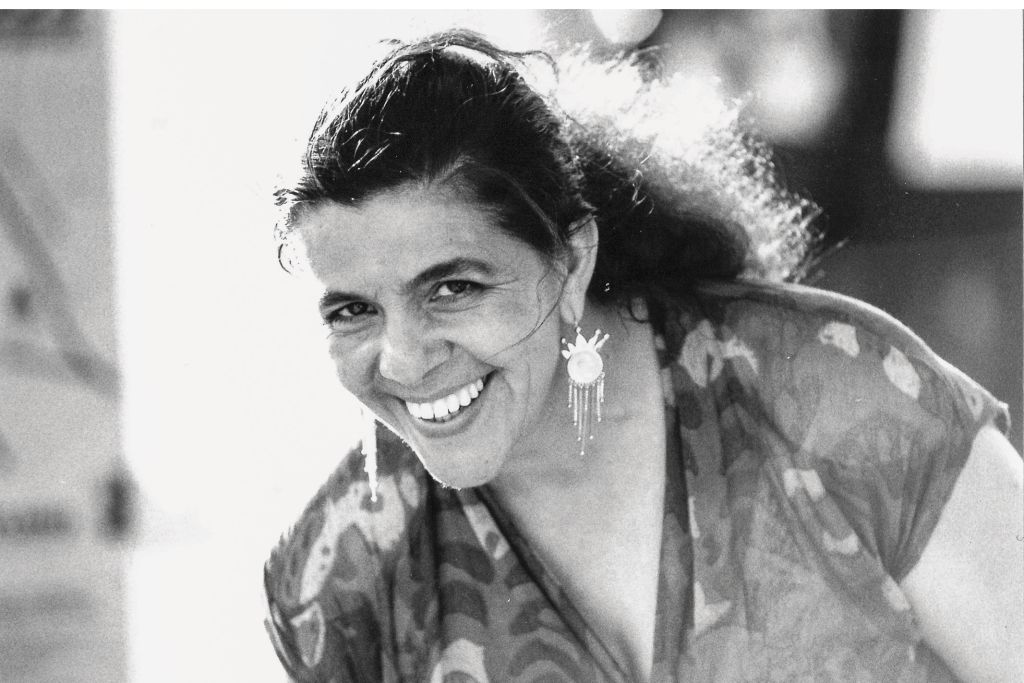In memory of Ruža Nikolić-Lakatos (1945–2022) and Willi Resetarits (1948–2022)
It was within the space of just a few short days that I received word of two deaths: Willi Resetarits passed away on 24 April, followed by Ruža Nikolić-Lakatos on 4 May. I had ties to both of these personalities on multiple levels, both of them have been important in my life, and I miss them both greatly. In the following, however, I’d like to explain why they were important for the mdw.
These two standout musicians worked in various genres, but both of them were music-making members of minorities who expressed this identity in their music as well as in their social and political engagement. This brought them into contact quite early on with the ethnomusicological minority research being pursued at the Department of Folk Music Research and Ethnomusicology as well as—from 2019 onward—at the Music and Minorities Research Center (MMRC).
Willi Resetarits was born in Stinatz, a Croatian village in Burgenland, in 1948. His life and activities are quite well known indeed, for his death shook the entire country. As the cover of his autobiography put it, he was an “exceptional Austrian entertainer and a politically active figure of our times”. Less well known, however, is his connection to the mdw. In November of 2015, the mdw Senate elected Willi Resetarits to the University Board. Angelika Kirchschlager’s resignation just prior had left a board position vacant amidst what were politically turbulent times at our university. And by electing a personality of such clear social and political positioning, the Senate generated an important signal for the entire mdw. I quote from the press release of 19 November 2015: “The Senate of the mdw – University of Music and Performing Arts Vienna has chosen Willi Resetarits, a socially and politically active musician of multifaceted fame, to fill the open position on the mdw’s University Board.”

With projects such as Die Schmetterlinge and as the stage figure Ostbahn Kurti, Willi Resetarits left his mark on Austrian popular music and set an example for other artists with respect to social responsibility by co-founding the charity SOS Mitmensch and the integration project Wiener Integrationshaus. During his term of office, he networked closely with the Department of Popular Music and also performed at University events. His Burgenland Croatian roots, which—particularly in recent years—had come into sharper focus in his musical activities, represented a close point of contact with the minority research pursued at our department. Moreover, the University’s close cooperation with the Integrationshaus in connection with displaced young people likewise came about thanks to him (mdw.ac.at/ive/projekte).
Ruža Nikolić-Lakatos, who belonged to a subgroup of the Roma known as the Lovara, was born in the small town of Papa, Hungary in 1945 and fled with her family to Austria during the Hungarian Uprising of 1956. It was here that Ruža met her future husband Mišo, and their marriage produced five children. The second-eldest, Sascha, passed away in 2004. For a mother, carrying one’s own child to their grave represents a moment of unimaginable anguish. And this was by no means the only stroke of fate for Ruža: three years later, her husband Mišo followed their son in death. But despite all this suffering, she was one of the most endearing, friendly, and positive people whom I’ve ever had the pleasure of getting to know.
She was renowned far beyond Austria’s borders for her music and for her engagement on behalf of the Roma as an ethnic group. “That’s how my wife Ruža became an ambassador of our people. She fascinates the audience with her voice and she’s radiant onstage, giving every listener the gift of her songs. Sa ande tumari paćiv! ‘In your honour!’” (Mišo Nikolić).
The Department of Folk Music Research and Ethnomusicology has Ruža to thank for its emphasis on minorities, which came about as follows: I, an ethnomusicologist, initially became interested in Romani music in 1988 when Ruža appeared in Bert Breit and Xaver Schwarzenberger’s television documentary Ihr werdet uns nie verstehen [You’ll Never Understand Us]. It concludes with Ruža standing on the Reichsbrücke, singing a song. This song, sung from that bridge, touched me in the truest sense—even though I couldn’t understand a word of it and knew nothing about this kind of music. So I wanted to learn to understand. This desire gave rise to numerous third party-funded research projects that ended up forming the basis for our minority research emphasis.

Back then, Ruža was already famous as a singer in her Romani community, that of the Lovara. She was most fond of singing the old traditional songs that she had learned as a child in Hungary, songs like the one heard in the documentary broadcast by the ORF. She numbered among the “upholders” of this tradition, and it was important to her that these songs live on. Otherwise, she wouldn’t have declared her willingness in the early 1990s to perform these songs for me, a young and naive researcher who’d been fascinated by her song on the Reichsbrücke and didn’t know much else. This was no typical ethnomusicological documentation; it was a gift for which I am still grateful. “Sa ća pačivake Uschi”, she would often say after a song, which more or less means: “In your honour”. I was permitted to record around 150 of her songs back then, songs that are now safely preserved in the archive of the mdw’s Department of Folk Music Research and Ethnomusicology and have in some cases also been published. That was also the time around which Ruža began performing publicly, having sung exclusively for her community up to then. Her career was closely connected with Mišo and her sons Sascha and Mischa—and back then, there was no Austrian festival featuring so-called world music where Ruža was not present. Romani music has since come to enjoy more and more public attention altogether, a development in which Ruža played a significant role. There were also hardly any major Department events for which she wasn’t booked, with her voice being heard at the ICTM World Conference (2007), international symposia, book presentations, jubilees, and memorial celebrations. December 2019 saw her awarded a prize—the Ruža Nikolić-Lakatos Prize—that had been named to honour her life’s work and her tireless efforts to preserve of the culture and language of the Roma. Due to illness, however, she was no longer able to personally attend the award ceremony, which was held at the venue Porgy and Bess.
These two personalities had in common their ability to harness the power of music in order to make our world a little bit better. Though they did this within the most disparate scenarios, their paths still did cross repeatedly: for example, both of them were onstage in the 2004 musical Coming Home. Ein musikalisches “Pannonical” by Christian Kolonovits in Oberwart, that town in southern Burgenland where the Second Austrian Republic’s worst massacre, in which 4 Romani boys died, took place in 1995. And on the CD Stimmen gegen Hass und Gewalt [Voices against Hate and Violence], which had been produced as a sign of solidarity with this massacre’s victims and as a clear artistic and political signal, the voices of Willi (as “Ostbahn-Kurti”) and Ruža can likewise be heard.
Willi Resetarits and Ruža Nikolić-Lakatos have helped shape Austria, have been lights in the darkness brought on by right-wing populist and xenophobic developments, and have achieved an incredible amount with their music. Their work will live on, though they will be sorely missed.

